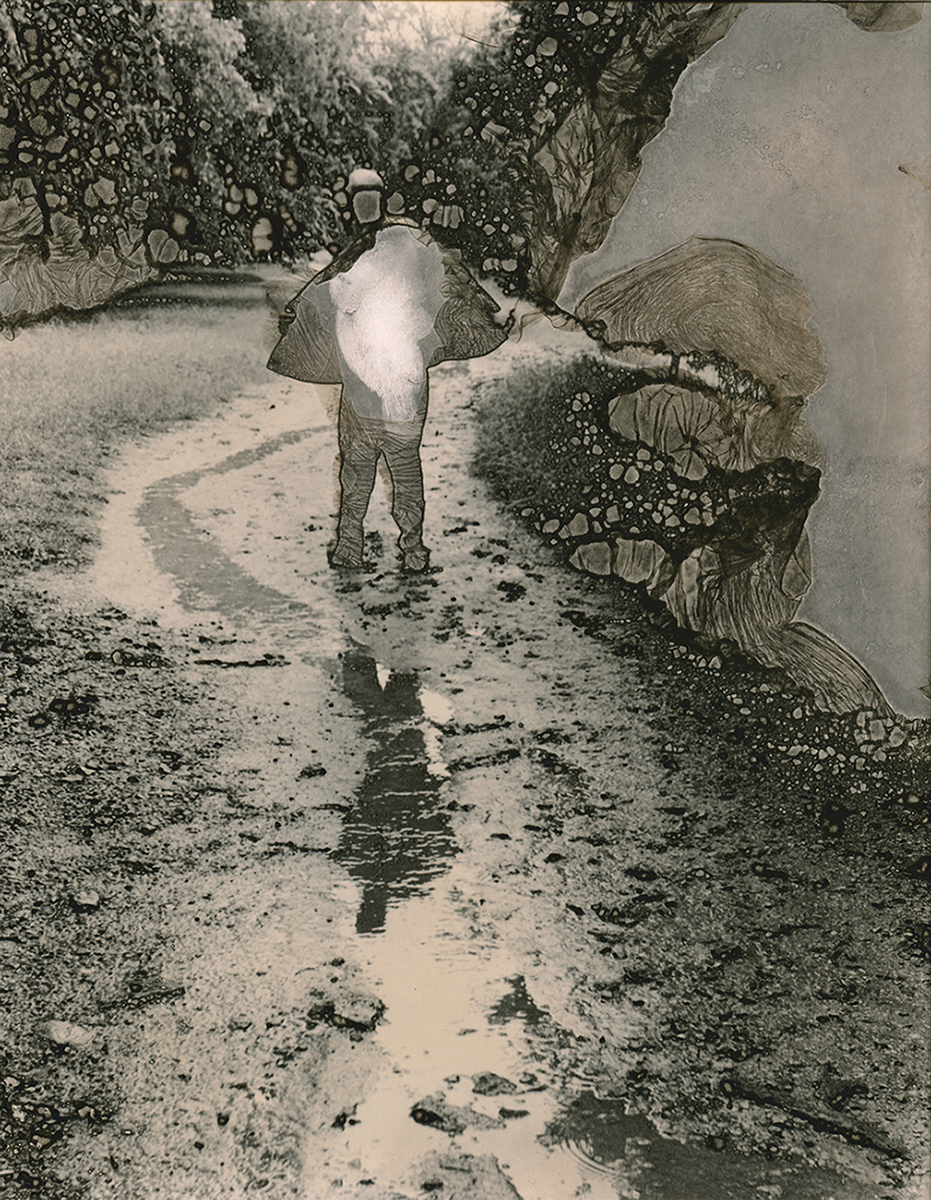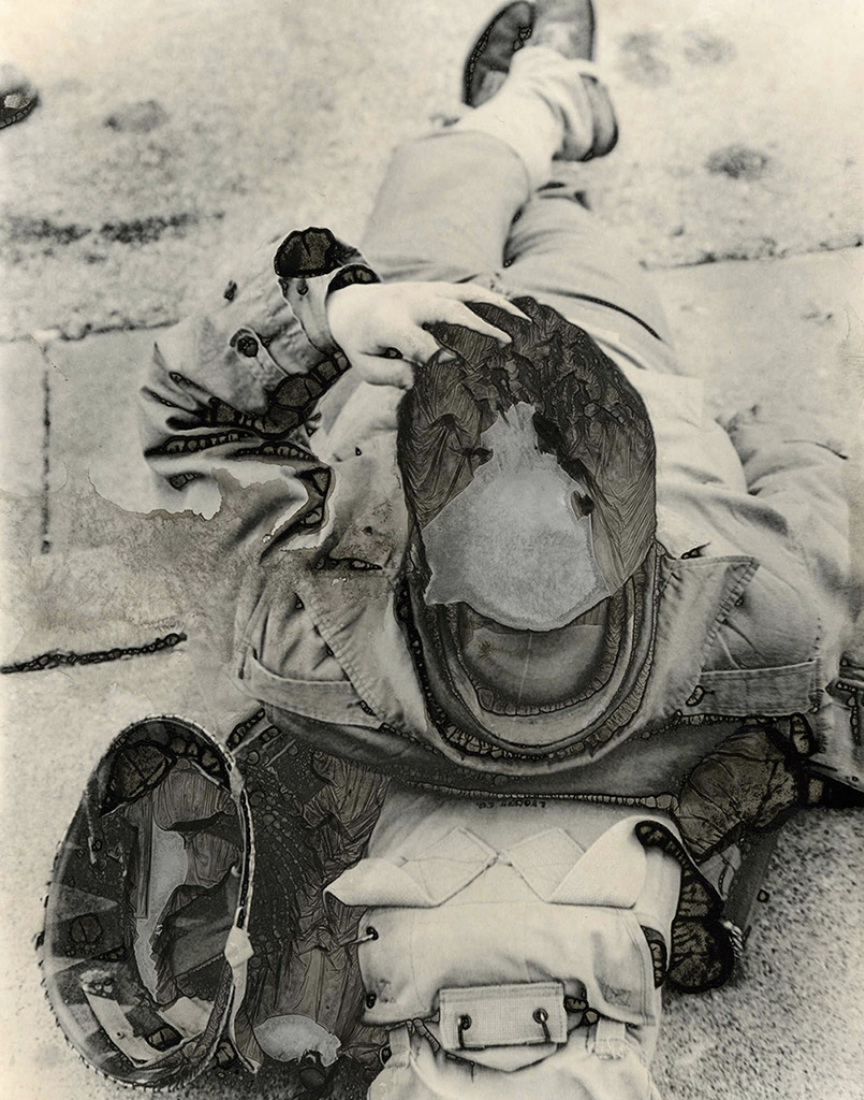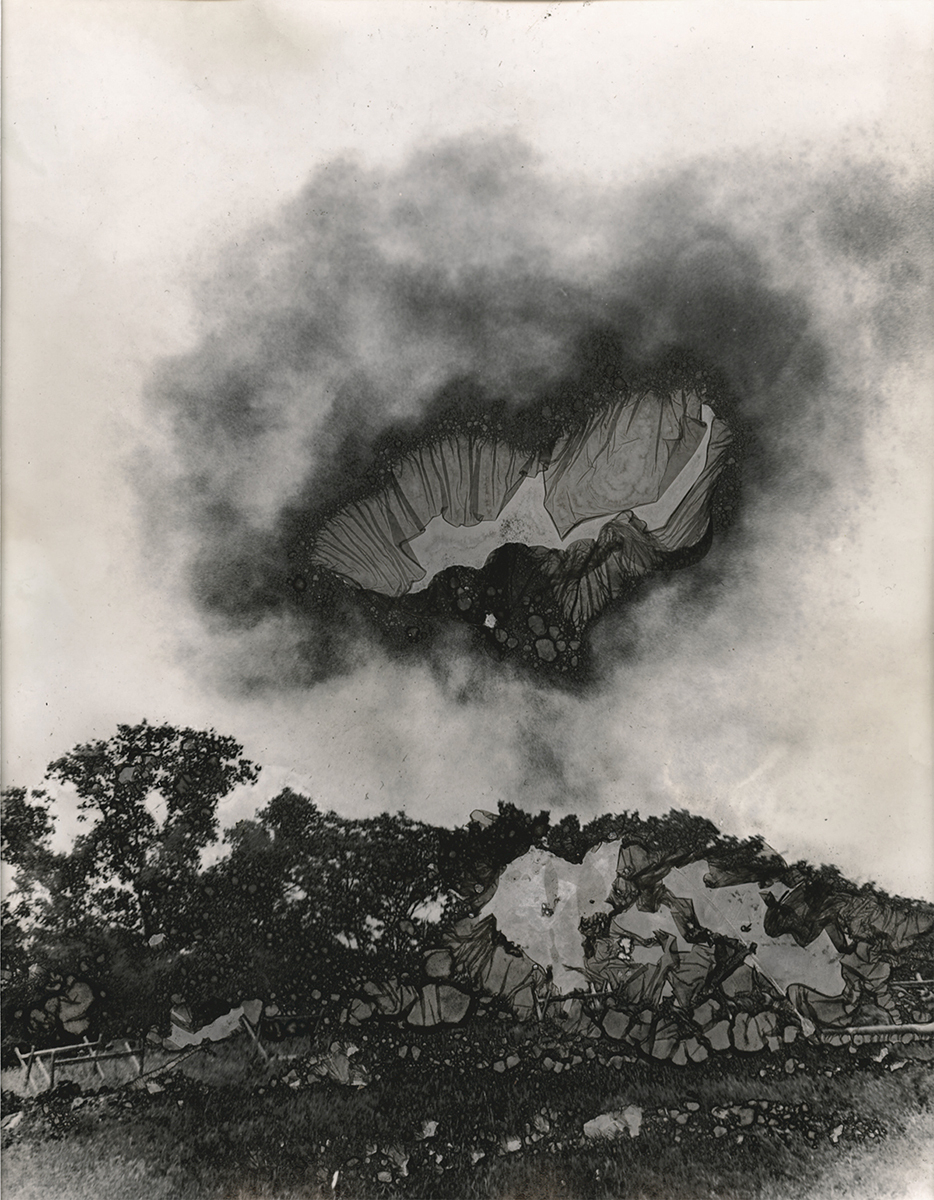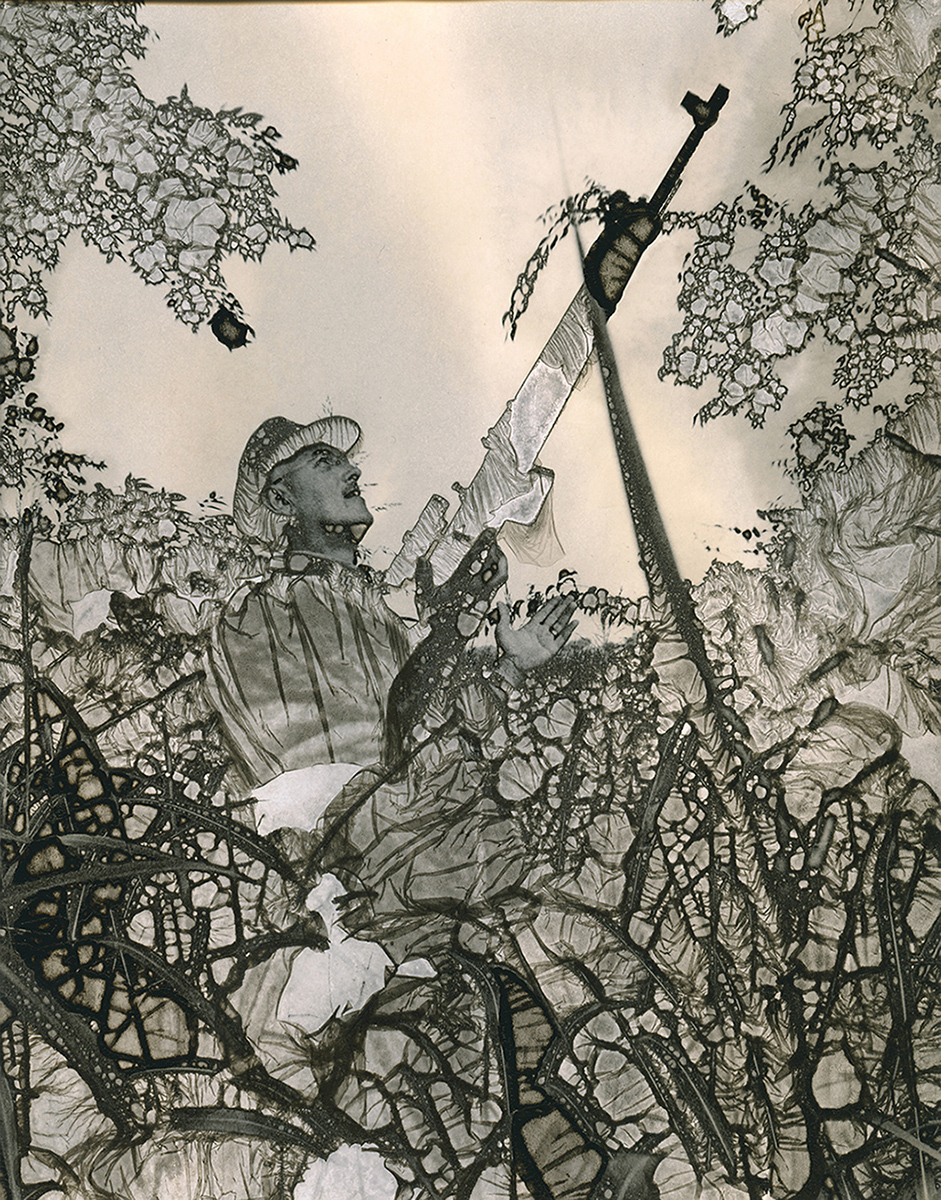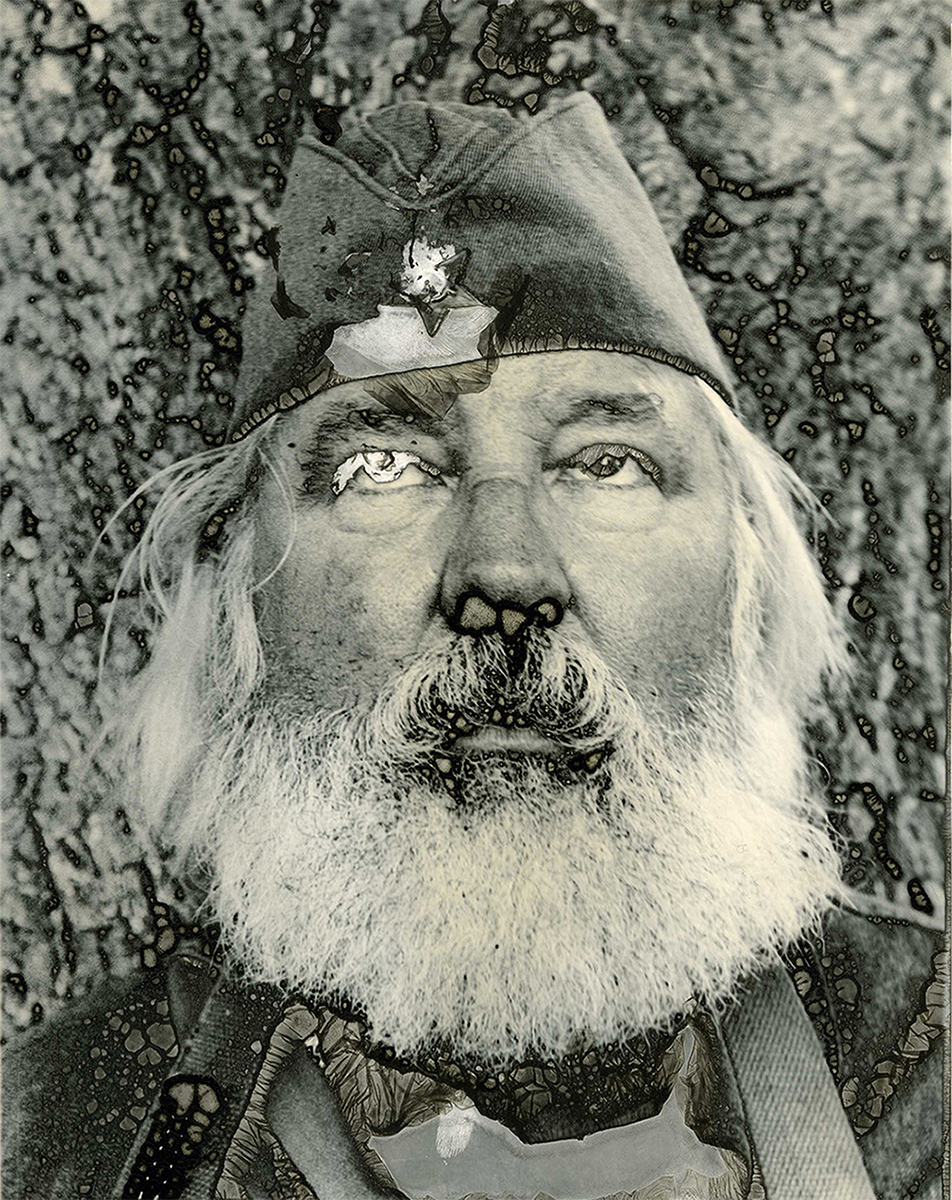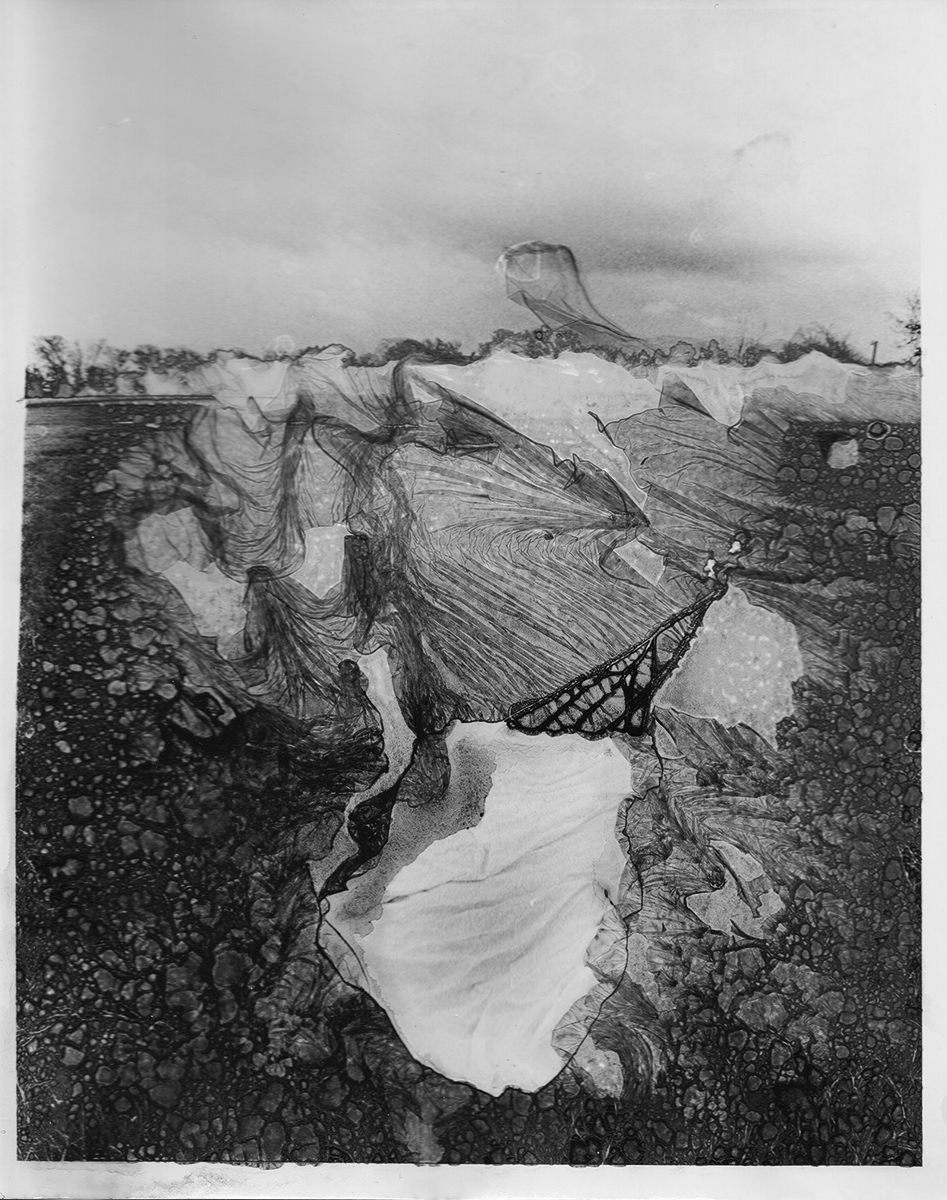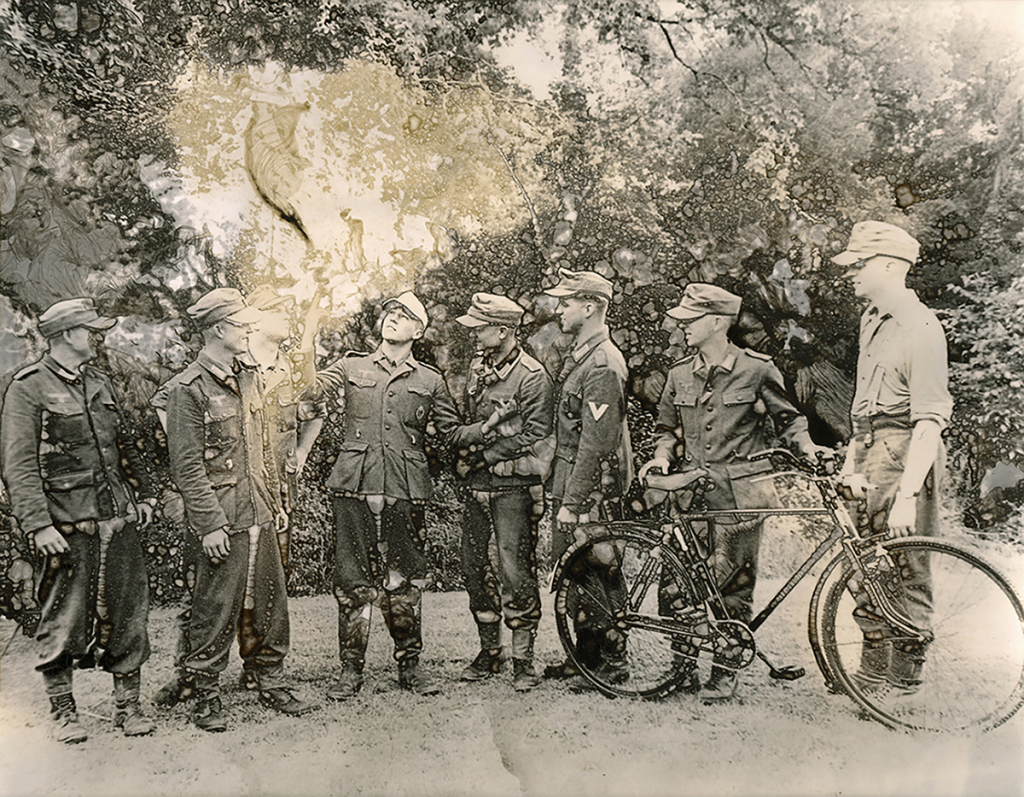Ellie Ivanova | Museum of Innocence
December 28, 2020
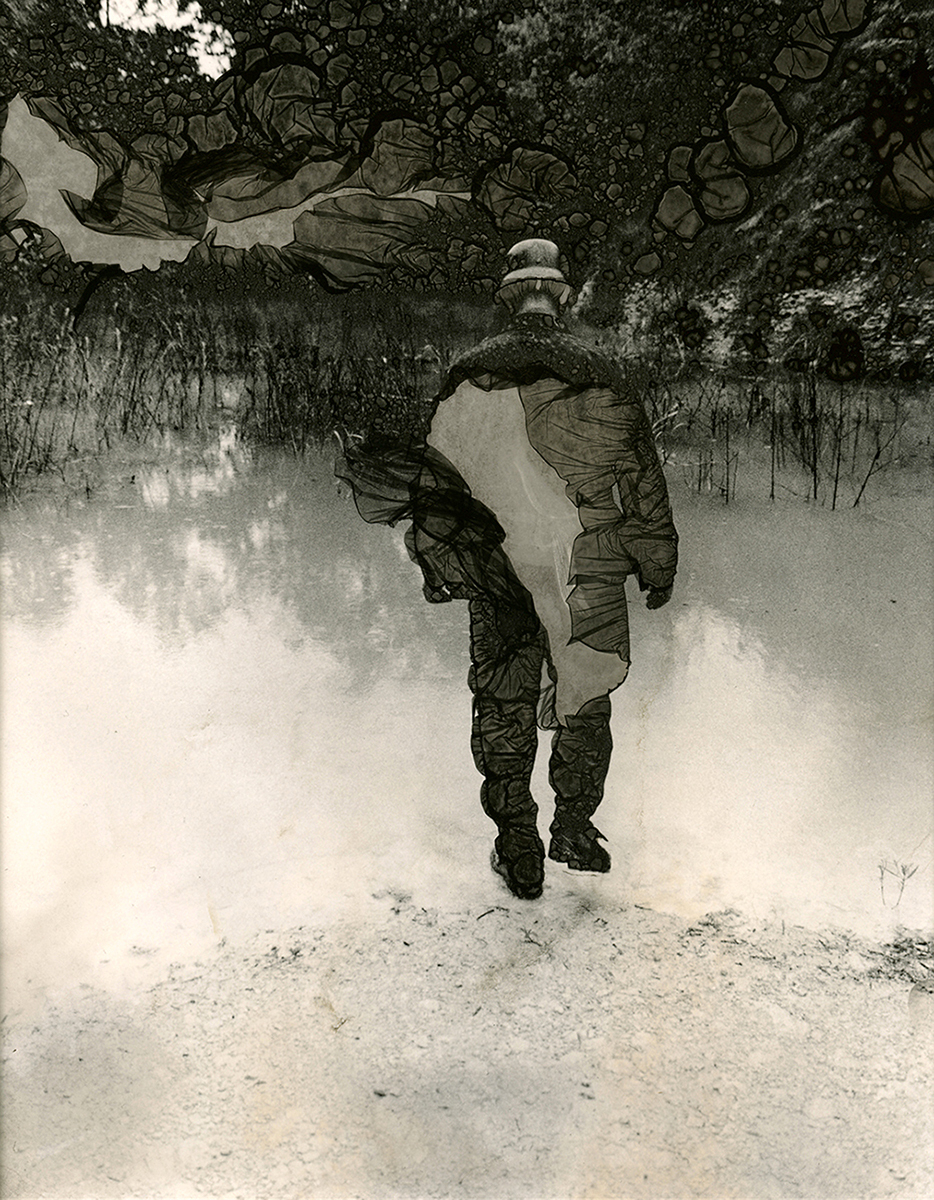
As long as photography has existed there has been the debate. Can an image function as an objective form of documentation, or does the very act of a photographer choosing when and where to point their lens make subjectivity unavoidable? Ellie Ivanova chooses an interesting intersection to explore this question. She photographs current day WWII reenactors who use documentary imagery to recreate the scenes that they mimic. In this loop, the photograph is read as a factual document, and its contents are meticulously brought to life again.
As I have spent more time with Ivanova’s work, the scope of its meaning has expanded for me. On the surface, Ivanova’s work is about memory and loss as it relates to history and war. However, one of the first things that Ivanova does is disrupt and damage the actual surface of her images. This gives me the impression that, perhaps, a broader meaning of her work is revealed in that very act of destruction.
Ivanova’s work explores the nature of breakdown. In it, I see a study in things falling apart. It’s as if she is having us watch a death; we are witnessing the disintegration of a form. In the process of decomposition, parts of her photographs disappear and other parts are blurred. In one image, a man stands in the middle of a muddy path. He faces the camera and is opening his coat. However, instead of seeing his body, we encounter what appears to be a growing orb of light. The man’s face has been similarly consumed and only a dark sphere exists in its place. It is as if we are witnessing the exact moment of a soul escaping the body.
It is painful to experience the destruction, the process of erasure and loss that is palpable in her work. I feel the spirit of death in her photographs; the death of a person, death of a place, a hope, a love, a life. One of the hardest things to do, is sit and watch the disintegration of a truth that you thought you knew. Ivanova’s soldiers, actors really, are a kind of stand-in for this universal experience. For me, this work is about being in that uncomfortable, difficult state of not knowing.
- Mia
View more of Ellie’s work here
